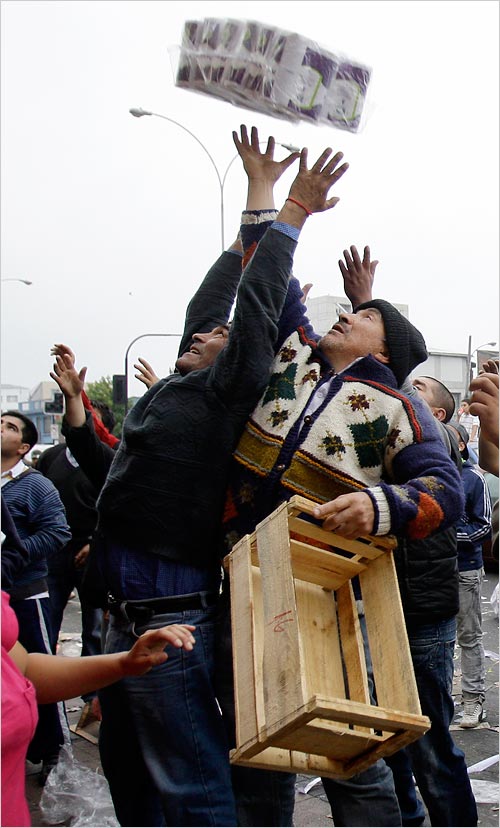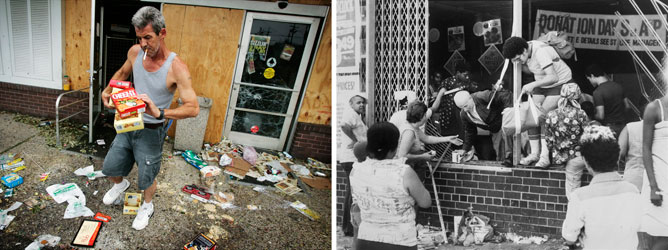| Want to send this page or a link to a friend? Click on mail at the top of this window. |
| More Books and Arts |
| A SPECIAL SECTION: Haiti, Since the January 12, 2010 Fierce Earthquake |
| Posted March 8, 2010 |
| THE LOOT | |
|
The Moral Ambiguity of Looting |
|
|
|
|
 |
|
|
NATACHA PISARENKO/ASSOCIATED PRESS |
|
| Groceries People caught staples thrown from a market in Concepción, near the center of Chile's earthquake. | |
|
|
|
If there's a moral scale for pillaging, Chile just offered a new standard. After its huge earthquake, it allowed some terrified citizens to walk off with basics. |
| By DONALD G. McNEIL Jr. |
 |
| MICHAEL APPLETON/N.Y. DAILY NEWS ARCHIVES VIA GETTY IMAGES, LEFT: BETTMAN CORBIS |
| Supermarkets were looting targets after Hurricane Katrina in New Orleans, left, in 2005, and a blackout in New York City, right, in 1977. |
| Wehaitians.com, the scholarly journal of democracy and human rights |
| More from wehaitians.com |